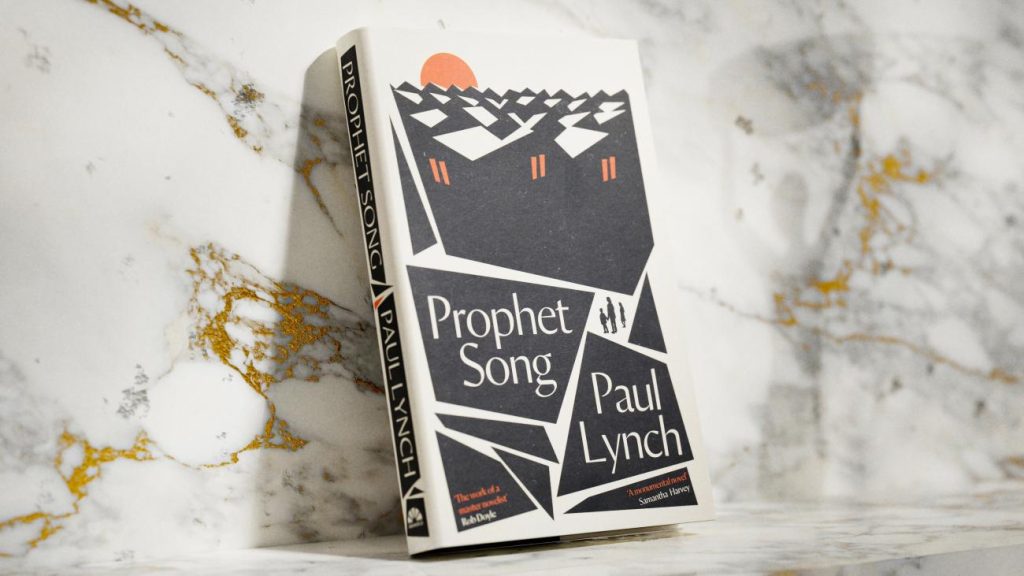A cautionary tale, but of what?
Prophet Song was the bestselling book in Ireland of 2023 in the wake of the Booker Prize being awarded to its author, Paul Lynch. While fictional, it deals quite openly with political issues at the heart of today’s Ireland – the far right, state repression and refugees.
What matters, however, are the threads traced by Lynch in his story and what it says of a certain liberal view on these issues.
The novel offers a claustrophobic and episodic form which is pulled off quite well, stretching and squeezing our sense of time and blurring the line between dream and reality, thoughts and dialogue. Lynch’s writing propels the story onwards, so much so that it was the first novel in a long time that constantly called for me over my phone.
Drawing us in with scarce details about the world around its lead character, Eilish, as it collapses around her family, I found myself clung to the pages by the tension. However, this loses momentum towards the last third of the book though likely by design as life falls to pieces around the main characters.
For what is undoubtedly a political novel, it is thoroughly apolitical, featuring no real grounding in Irish society and politics save for mentions of the Teachers Union of Ireland. The National Alliance Party (NAP), which in reviews has been characterised as fascist, does not seem to have a political line except for maintaining power.
This of course is a well-trodden cliché of liberal analyses of fascism – that it is simply totalitarianism with no other concern than to stay in power. The question that begs an answer is who are they in power for?
There is little to no mention of a capitalist class aside for the scalping practices of petit bourgeois corner shops during shortages brought on by rebellion. There is no indication even of racism or misogyny, key hallmarks of fascist rule.
Lynch himself has refused the label of ‘political novel,’ stating that “as a citizen, I see the benefit of it. But as an artist, I’m really deeply sceptical about it.” This apolitical approach to political issues is core to the liberal approach to fascism, which refuses to analyse the mission of fascists.

A positive review by the Socialist Party (which gets the protagonist’s name wrong!) looks past the classless nature of the book, instead highlighting the regime’s repression of trade unions which “speaks to an understanding of far-right forces seeing the organised workers’ movement as their main enemy”- though the only action contemplated by the unions are holding protests. This is their only mention of class.
Another review in Socialist Voice correctly identifies deeply anti-working-class language throughout the book such as “junkies” and “feral children from the flats”, with Lynch depicting people who speak in accents as wretched opportunists, as opposed to Eilish and the people around her who are apparently accentless.
The apolitical through-line betrays a liberal approach to the far right and fascism. Eilish and Larry are both, in their own ways, complicit in the coming to power of the NAP through their detachment from politics and their denial of the true situation.
We should reserve extra scorn for Larry, a senior union bureaucrat, a fact which amusingly mirrors the current crop of trade union leaders content in betraying their class in their passivity towards such challenges as the far-right.
Fascism, according to Lynch, springs up from nowhere and has no material basis. It can be beaten not by mass protest nor armed struggle. It even has no political vision – no policies are described in the whole book except the strengthening of the repressive security state and the placing of party officials in positions of power. We are left wondering what exactly it was that propelled the NAP to power through elections.
If there is a useful political lesson to be gleaned, it is that liberal ideas of fascism cannot imagine a proactive response to the rise of the far-right. The capitalist class, liberal civil society that speaks for it, and the union bureaucrats who do their dirty work will offer no meaningful resistance to the far right in any context which does not threaten their comfort or their profit margin.

